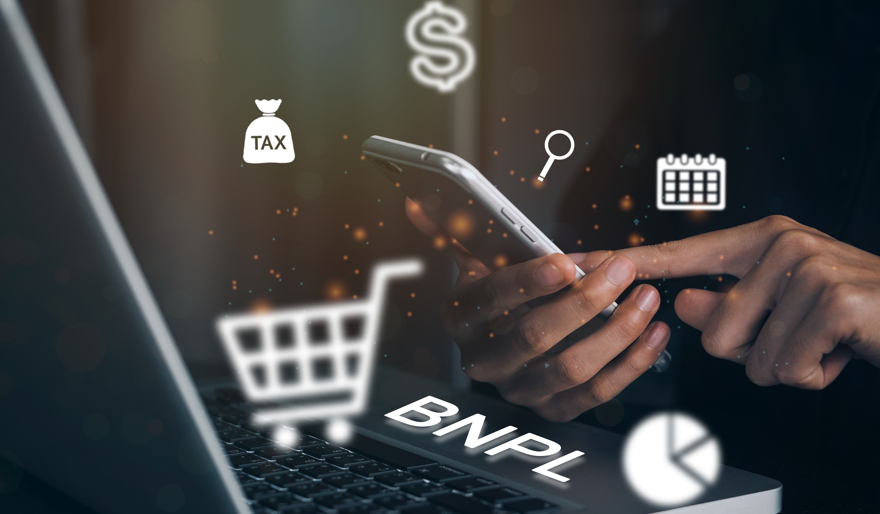
Each week, RBI’s journalists select a deal that illustrates the themes driving change in our sector. The deal may not always be the largest in value, or the highest profile. But we select it because of what it tells us about where the leading companies are focusing their efforts, and why. We pick apart the deal itself, and the industry theme behind it. This new, thematic deal coverage is driven by our underlying Disruptor data which tracks all major deals, patents, company filings, hiring patterns and social media buzz across our sectors.
The deal
US-headquartered neobank is to snap up BNPL outfit Uplift. Back in 2019, Uplift was celebrating a successful Series C funding round, having raised $123m. Back then, BNPL was booming. BNPL worked with partners such as the holiday package sites of airlines to offer financing to travellers, allowing them to pay for their trips in instalments. In total, Uplift raised nearly $700m in equity and debt. Fast forward to 2013 and Uplift faces rising delinquency rates and the threat of BNPL sector regulation.

Access deeper industry intelligence
Experience unmatched clarity with a single platform that combines unique data, AI, and human expertise.
Why it matters
The deal is notable for a number of reasons, not least as it is further evidence of the need for consolidation in the crowded and largely unprofitable BNPL sector. It is hardly the exit that investors in Uplift will have wished. As recently as two years ago, BNPL was booming, boosted by pandemic era-expenditure habits.
BNPL critics, of which there are a growing number, will argue that the Upgrade/Uplift deal highlights that the BNPL bubble is over.
At their peak in 2021, the quoted BNPL stocks were worth $38bn. Their combined market cap today is below $500m. The BNPL sector is a sea of red with BNPL outfits struggling to survive. IOUpay and Open pay failed. Payright and Laybuy delisted from the ASX. Humm cut back on BNPL and withdrew from Europe and New Zealand. Latitude Pay gave up on BNPL in March. As for market valuations of other notable players, the share prices of Douugh, Fatfish, Sezzle, Splitit and Zip are all down by more than 90% since their respective peaks.
Even Klarna, once Europe’s most valuable VC-backed outfit, suffered an 85% valuation cut.

US Tariffs are shifting - will you react or anticipate?
Don’t let policy changes catch you off guard. Stay proactive with real-time data and expert analysis.
By GlobalDataIf other countries follow Australia’s lead and regulate BNPL, the sector faces a challenging future. The UK government is under pressure to regulate BNPL but has suddenly gone quiet on the subject, notwithstanding much pressure from charities and debt campaigners.
Ravi Sharma, lead banking and payments analyst at GlobalData, is more upbeat as regards the sector in general and this deal in particular. He tells RBI: “Tourism which was one of most affected sectors by the pandemic has now picked up pace with significant rise in travel activities globally. Although there has been recovery in economy post pandemic, most markets are now facing new challenges in the form of heightened geopolitical risks, high inflation, and interest rates. This has led to an emerging trend with consumers preferring to make deferred payments on their travel packages instead of parting with money at one go. Buy now pay later (BNPL), therefore, fills a significant void in this space, providing an opportunity of players operating in this space.”
Sharma adds: “Uplift is a BNPL service provider mainly focussed on the tourism sector in the US and Canada. This deal marks Upgrade’s entry into the lucrative BNPL and means it can serve Uplift’s 3.3 million customers in addition to its own 2.5 million customers. Upgrade will also have access to Uplift’s partnership with over 300 largest airlines, cruise lines, and hotel chains. Additionally, the deal will also provide Upgrade a cross-selling opportunity for its financial products and services to a wider customer base.”
The detail
Upgrade has weighed a possible IPO in 2023. This deal may well impact any IPO timetable. Upgrade has delivered over $24bn in affordable and responsible credit to mainstream consumers through cards and loans since its inception in 2017. Travel financing fits within Upgrade’s strategy of making credit available at the point of sale to finance meaningful expenses such as buying a car or making home improvements, in addition to making credit available directly to consumers through cards and loans.
Neo bank Upgrade will pay $100m in cash and shares for Uplift. The new entity will look to benefit from areas of potential synergy, combining Uplift’s 3.3 million customer to add to Upgrade’s 2.2 million existing customers.






